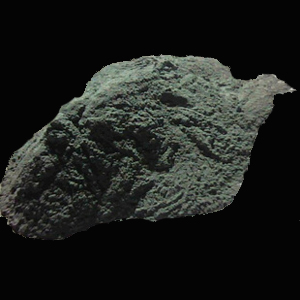[ferro-alloys.com]Ferroglobe's combined silicon and manganese alloys shipments in 2019 slid 15% year on year to 926,077 mt as the company continued to face pricing and volume pressures in the fourth quarter, its CEO Marco Levi said Tuesday.
"There were a number of factors which have adversely impacted the company during 2019, led by a steady drop in prices and sharp decline in volumes," Levi told investors during a conference call. "While we have been making operational, commercial and financial adjustments throughout the year, the fourth quarter results remain impacted by the same price and volume trends."
The fall in shipments was mainly attributable to Ferroglobe's silicon metal segment, where shipments plunged 32% year on year to 238,192 mt in 2019 due to lower production.
"Our silicon metal production was adversely impacted by higher winter electricity unit costs in France as well as greater specific consumption of energy at few locations," Levi said.
"Additionally, the planned production curtailments drove higher production costs," Levi added. "We confirm that the previously announced curtailments of 56,000 mt of silicon capacity was implemented during the quarter."
Ferroglobe's silicon-based alloy shipments also fell to 295,429 mt in 2019 from 311,703 mt in 2018. Levi attributed the drop to slowdowns in the steel and automotive end markets.
Levi said the 2019 average selling prices of silicon and silicon-based alloys declined 14.8% to $1.02/lb and 16.2% to 70 cents/lb year over year, respectively, due to reduced customer activity and destocking.
Ferroglobe swung to a loss of $288.1 million on $1.6 billion in revenue in 2019, from profit of $24.6 million on sales of $2.2 billion in 2018.
Levi said the market headwinds from 2019 had continued into 2020, though there were signs of recovery as Ferroglobe continued its operational changes.
"On a positive note, we have seen both US and European indices increase in early 2020," Levis said.
"This is the result of a pickup in overall customer activity, following lower orders during the negotiation season and the positive impact of the capacity curtailments by Ferroglobe and several other suppliers in Q4, which is beginning to show through the indices."
MANGANESE ALLOY SALES DOWN 7.5% ON YEAR
Feroglobe's manganese-based alloys shipments fell to 392,456 mt in 2019, a 7.5% drop from 2018.
However, Levi said sales picked up towards the end of the year as the company worked down its finished goods inventory aggressively as part of its cash generation plan.
The selling of anganese inventory also contributed to lower prices, as Ferroglobe's reported average selling price for manganese-based alloys in 2019 fell to 52 cents/lb from 56 cents/lb in 2018.
"We sold a higher proportion of ferromanganese relative to silicon manganese in the fourth quarter, which resulted in both lower overall prices and costs," Levi said, adding cutbacks in global steel production also caused price declines for manganese-based alloys.
ASIAN SLOWDOWN SUPPORTING PRICES
Levi said Ferroglobe's operations had not yet been directly impacted by the coronavirus, but the slowdown in China's industrial activity has had near-term benefits for the company's markets.
"Today, we are seeing a net benefit from the activity slowdown in China, evidenced by lower exports of silicon metal into our markets," Levi said. "Additionally, neighboring production hubs are beginning to curtail production, which is also a benefit to our silicon-based alloys and manganese based alloys business."
Levi said it was too early to assess the impact on demand as a result of the virus, but none of Ferroglobe's customers had yet closed any of their facilities.
"The impact of the coronavirus on our business and the broader financing market is something we are tracking closely," Levi said.
Levi said lower exports from Asia had supported the pricing environment for silicon and ferrosilicon in the early part of 2020, with a similar impact expected in the manganese market.
"In addition to a slight recoverr in the index pricing for silicon ferromanganese, we think that manganese overpricing is prime for a pullback given the slowdown of activity in China, which has led to growing inventory levels of ore at the port," Levi said. "We anticipate this trend would be favorable to our manganese business overall."
(S&P Global Platts)
- [Editor:王可]



 Save
Save Print
Print Daily News
Daily News Research
Research Magazine
Magazine Company Database
Company Database Customized Database
Customized Database Conferences
Conferences Advertisement
Advertisement Trade
Trade














Tell Us What You Think